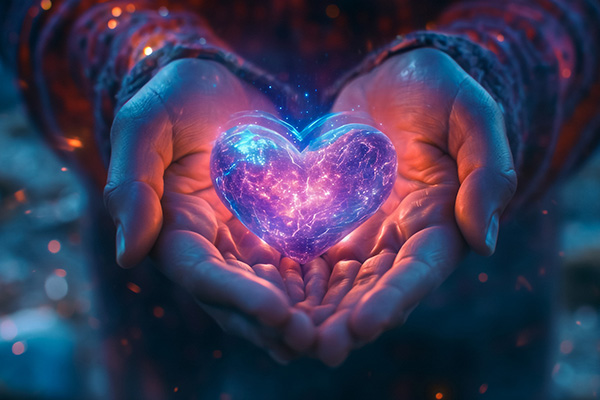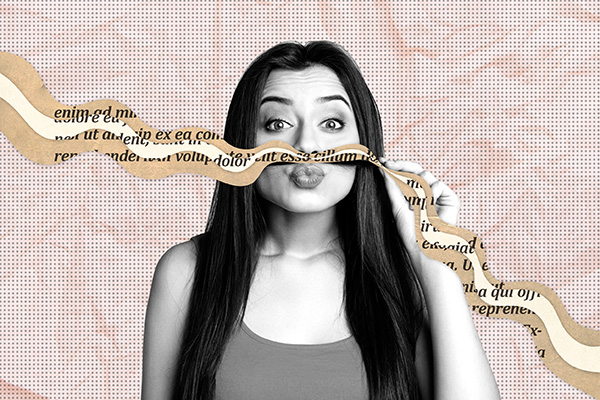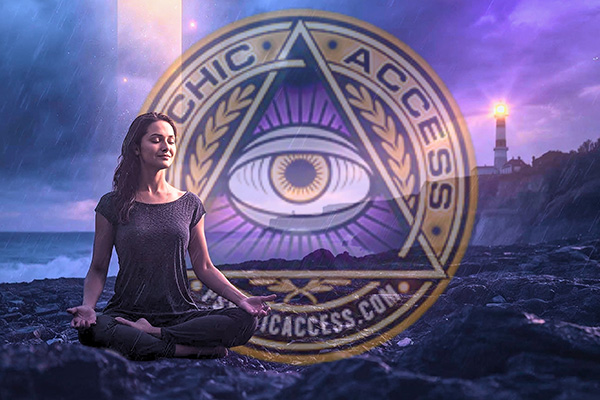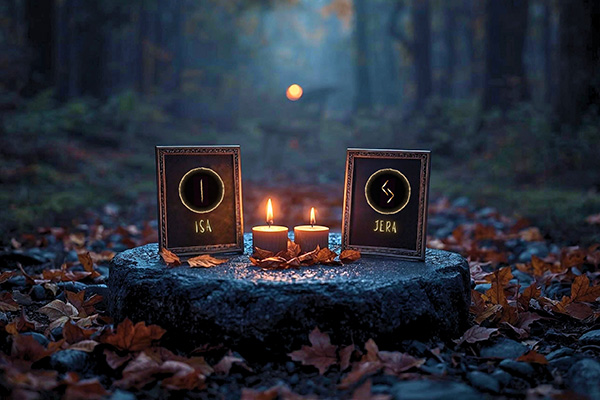self-nurture
Navigating Grief Without Losing Yourself
 In my work as a psychic reader, I have worked with many people navigating grief. Over the years, I have witnessed how people process loss and transition differently.
In my work as a psychic reader, I have worked with many people navigating grief. Over the years, I have witnessed how people process loss and transition differently.
I have often had to guide clients toward grounding, self-trust, and setting compassionate boundaries. And, as life would have it, I recently had to draw on that wisdom and apply it to my own family.
My father was recently admitted to hospice care at his local nursing home after spending a week in the hospital. His prognosis was poor.
As our family transitioned to this new phase of care, I stayed in touch with loved ones and made decisions centered on his comfort and dignity.
At the same time, I made a conscious effort to protect my emotional energy and maintain healthy boundaries so that I could stay grounded.
In these circumstances I’ve been grappling with a kind of grief that isn’t often acknowledged: the grief of realizing someone you love is no longer the person they once were.
Even when they are physically present, the relationship shifts. There can be a quiet heartbreak in adjusting to the present while remembering the past.
There is also grief in watching a family reorganize itself. During times of transition, long-standing dynamics often change. Some family connections deepen and some relationships no longer operate as they once did. This can also feel like a loss in terms of shared understanding and how things “used to be.” Sudden changes in family circumstances tend to reveal where everyone actually stands.
Your Sacred Center Of Self-Love
 We all thrive on being loved. This is natural, of course, if you look back at humanity in history on an evolutionary level. Ancient people came together in tribes, families, and groups, to cultivate a place of safety, security, nurturance, and love.
We all thrive on being loved. This is natural, of course, if you look back at humanity in history on an evolutionary level. Ancient people came together in tribes, families, and groups, to cultivate a place of safety, security, nurturance, and love.
If you were different or stood out in any way, or even left the tribe, you were literally putting your own life at risk. This topic can be viewed from so many arenas, including psychological, spiritual, scientific, and psychic.
I often wonder how and when did we start defining ourselves by how others felt about us, and why did we believe that other’s thoughts about us were true? At what point in time did we allow others to define us? It’s as though we as humanity went into a deep trance.
We all know the phrase, “Love thyself first”. When did we forget this vital piece of information?
There are many ways we can come back in touch with this essential truth, but for the most part, our society does not support a lifestyle that would naturally lead us back to our sacred center of self-love.
How often do you take a moment to look in the mirror, or tell yourself, “I love you?” Most of us feel silly doing this, but it is very healing.
Have you ever met an older person who behaves in ways that are foolish or who just doesn’t give a hoot what anyone else thinks? My paternal grandfather used to throw dinner rolls across the table at me in fancy restaurants. While my parents and other family seated at the table would roll their eyes at my Grampy, I used to laugh hysterically!
Hold Your Tongue To Protect Your Peace
 Some people deal with unresolved pain in their lives, and that pain often shows up in their words. You can usually feel it right away. Their words can feel heavy, sharp, or draining, like they disrupt the energetic balance of a space.
Some people deal with unresolved pain in their lives, and that pain often shows up in their words. You can usually feel it right away. Their words can feel heavy, sharp, or draining, like they disrupt the energetic balance of a space.
In spiritual work, one of the first lessons one learns is that words carry vibration.
If you’re the kind of person who’s intuitive, empathic or highly sensitive, this kind of exposure can feel especially overwhelming, leaving you emotionally upset or energetically drained. This reaction isn’t a sign of weakness. It’s just your inner guidance that tells you when something’s off.
It’s important to be discerning on a spiritual path. You don’t have to respond to every person or comment. Not every interaction needs a response.
When someone’s speaking from a place of anger, fear, or unresolved issues, you’re totally allowed to take a step back and choose not to engage with it. Silence isn’t avoidance. It’s all about being mindful of your energy use and being spiritually mature.
Take a breath before you react. Bring your awareness into your body and ground yourself in the present moment. Try to respond with clarity instead of emotion. Meditation, prayer, or just taking some time for yourself can help you get in sync with your higher self instead of getting caught up in reactive patterns.
Finding Calm And Clarity With Psychic Access
 These days, our devices overflow with superficial noise, while our hearts and minds long for meaning, calm, and a sense of hope and purpose. The world has become so much louder, faster, and more uncertain since we offered our first readings 20 years ago.
These days, our devices overflow with superficial noise, while our hearts and minds long for meaning, calm, and a sense of hope and purpose. The world has become so much louder, faster, and more uncertain since we offered our first readings 20 years ago.
We asked our team of psychics and mediums what they sense around the current state of the world, and the feedback was almost unanimously the same: the energy of the current moment feels dense, heavy, and for some even muted…like a global fatigue.
But this is not an intense energy shift that has struck suddenly, like we experienced back in 2007 with the global financial crisis. Instead, these days, there seems to be more of a quiet exhaustion that seeps into everyday life and weighs us down.
Economists and politicians may measure the current state of the world in numbers and votes, but for our team of spiritual experts it simply feels like an “energy recession.” A collective depletion of trust, enthusiasm, and inner peace.
At PsychicAccess.com, we deeply understand this atmosphere because, it is partly our job to monitor the hidden pulse beneath the world’s surface and sense what’s happening beyond everyday reality.
We engage with loyal clients all over the world every day, who rely on us for guidance and inspiration, so we must stay energetically up to date and deeply aware to always be of service to them. Continue reading
Embracing The Dark Season With Isa And Jera
 This time of year, when the air first sharpens and the trees begin to release their golden leaves, I feel a familiar stirring in my heart and soul.
This time of year, when the air first sharpens and the trees begin to release their golden leaves, I feel a familiar stirring in my heart and soul.
Early fall has always been more than just a change of weather to me. It is a threshold, a sacred gateway that leads us from the brightness of summer into the deeper mystical wisdom of the dark season.
There’s a particular magic in this in-between time of the year…where light and shadow meet, and the veil between worlds begins to thin.
Fall is not merely an ending; it is an invitation inward. It asks us to reflect, to release, and to realign with the deeper currents that move through all things. Just as the trees surrender their leaves, we too are asked to let go of bad habits, limiting beliefs, or self-imposed burdens that no longer serve our highest path.
Our ancestors knew this well. They did not simply mark their calendars this time of year…to cover the pool or reorganize their closets, like we do. Instead, they were in deep sync with the rhythmic cycles of the year.
In the North, they honored the harvest with gratitude, they stored up sustenance for the long winter months ahead…and they carefully consulted the runes. The runes were for them living messages from the gods that spoke of fate, nature, and the mysteries of life.
As an spiritual advisor who works with the runes, I often remind my clients that these symbols are not relics of the past. They are very much alive, pulsing with energy, ready to guide us if we open ourselves to their voices.
Understanding How Men Fall In Love: Mind, Body & Soul
 What makes a man fall in love head-over-heels? When does a guy go from casual interest, to “I want you in my life.” Maybe it’s timing. Maybe he’s been waiting for someone like you. Or maybe you’re way ahead of him.
What makes a man fall in love head-over-heels? When does a guy go from casual interest, to “I want you in my life.” Maybe it’s timing. Maybe he’s been waiting for someone like you. Or maybe you’re way ahead of him.
But from what I’ve seen in thousands of psychic readings over the years, what really flips that switch is chemistry and connection. The way you look into his eyes. The way you listen to him like he’s the only person in the room. How you make him feel, and that sense that, in his arms, you belong.
It is not true that most men are obsessed with looks only. While an attractive appearance certainly helps to get things off the ground initially, this is not what men stick around for in the long term.
Some men are drawn to personality. Some to your kindness and tolerance towards others. Some are drawn to the way you think. Some to the scent of you. Some to that feeling that life without you would be boring. Sound familiar? Yes, the truth is, men and women want a lot of the same things: feeling important, wanted, accepted, appreciated.
A man will bond with you when he feels he can make you happy. When he knows you accept him fully. When he feels seen. Even the parts he hides! Because when he knows that, he gives himself to you: heart, mind, and soul.
There’s another myth that men like sassy women who “play hard to get,” as so often portrayed in Hollywood romcoms. That’s not it at all. What he does like is a woman who is secure in herself, who laughs easily, who keeps her own life going, who has her stuff together (not perfect, just real). And yes, attractive to him. But more than looks…she has backbone, presence, a rhythm of life.
Are You Desperately Seeking Your Soulmate?
 As a psychic reader, I often deal with questions about love and relationships. Many clients ask about meeting their soulmate, twin flame, or special life partner.
As a psychic reader, I often deal with questions about love and relationships. Many clients ask about meeting their soulmate, twin flame, or special life partner.
A dear client once told me how desperate she was to find her soulmate. She said she wouldn’t be happy until she met him, as she believed he would complete her.
But Spirit did not respond with a simplistic prediction or quick fix. The message was clear and direct: she would never find a man to complete her. Instead, she would have to find happiness and fulfillment from within. Only after she accomplished this would she be able to find lasting happiness in a relationship.
I gave her some things she could do to help her and I was later thrilled to get an email from her telling me how thankful she was. She was looking to all the wrong things and people to give her the happiness she so desired.
She then asked me the right question and I was so happy she remembered! How could she connect with her true beloved?
I remote viewed and explained where I saw him and felt it was someone from her past and how she could find him by simply not looking, and we discussed many different things about this person.
She never realized it, until I finally mentioned to her, that this was her best friend that she had been in touch with for many years. They had had their ups and downs, but as I explained, even the best of marriages are like roller-coaster rides. It is not the easy connections that we gain the greatest amount of soul growth from. Instead, the relationships that aren’t easy are the ones that you become wiser from and gain the most wisdom from.